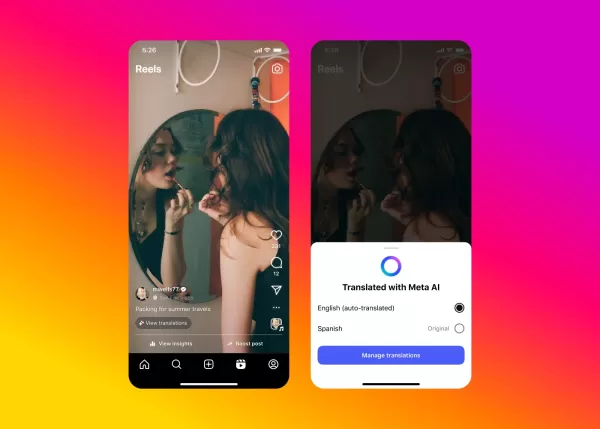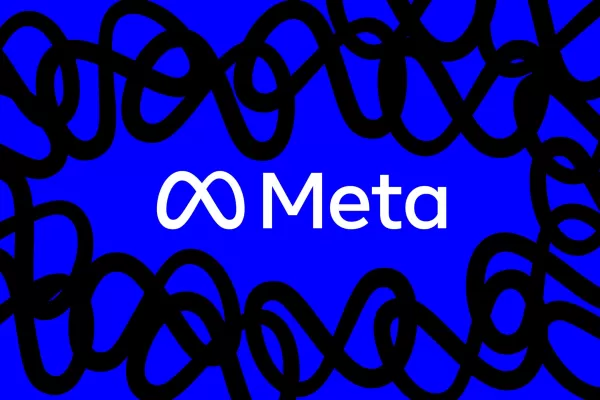Law Professors Support Authors in AI Copyright Battle Against Meta

A group of copyright law professors has thrown their support behind authors suing Meta, alleging that the tech giant trained its Llama AI models on e-books without the authors' consent. The professors filed an amicus brief on Friday in the U.S. District Court for the Northern District of California, San Francisco Division, challenging Meta's claim of fair use. They argue that Meta's defense is seeking "a breathtaking request for greater legal privileges than courts have ever granted human authors."
The brief asserts that using copyrighted works to train AI models isn't "transformative." It states, "The use of copyrighted works to train generative models is not 'transformative,' because using works for that purpose is not relevantly different from using them to educate human authors, which is a principal original purpose of all of [authors'] works." Furthermore, it argues that this use is commercial in nature, as it enables the creation of competing works in the same market, especially when pursued by a for-profit entity like Meta.
Adding to the chorus of support for the authors, the International Association of Scientific, Technical, and Medical Publishers, a global trade association for academic and professional publishers, also filed an amicus brief on the same day.
Following the publication of this article, a Meta spokesperson directed TechCrunch to amicus briefs filed by a smaller group of law professors and the Electronic Frontier Foundation last week, which support Meta's stance in the case.
The Case: Kadrey v. Meta
In the lawsuit, authors such as Richard Kadrey, Sarah Silverman, and Ta-Nehisi Coates claim that Meta infringed on their intellectual property by using their e-books to train AI models. They further allege that Meta stripped the copyright information from these e-books to conceal the infringement. In response, Meta has argued that its use of the e-books falls under fair use and that the case should be dismissed due to the authors' lack of standing to sue.
Earlier this month, U.S. District Judge Vince Chhabria allowed the case to proceed, though he dismissed a portion of it. In his ruling, Chhabria noted that the copyright infringement claim constitutes "obviously a concrete injury sufficient for standing," and that the authors have "adequately alleged that Meta intentionally removed CMI [copyright management information] to conceal copyright infringement."
Currently, the courts are handling several AI-related copyright lawsuits, including The New York Times' suit against OpenAI.
Updated 3:36 p.m. Pacific: Added references to the International Association of Scientific, Technical, and Medical Publishers' amicus brief, as well as amicus briefs filed in support of Meta's position.
Related article
 Meta's Zuckerberg Says Not All AI 'Superintelligence' Models Will Be Open-Sourced
Meta's Strategic Shift Toward Personal SuperintelligenceMeta CEO Mark Zuckerberg outlined an ambitious vision this week for "personal superintelligence" – AI systems that empower individuals to accomplish personal objectives - signaling potential cha
Meta's Zuckerberg Says Not All AI 'Superintelligence' Models Will Be Open-Sourced
Meta's Strategic Shift Toward Personal SuperintelligenceMeta CEO Mark Zuckerberg outlined an ambitious vision this week for "personal superintelligence" – AI systems that empower individuals to accomplish personal objectives - signaling potential cha
 Meta's AI Tackles Video Dubbing for Instagram Content
Meta is expanding access to its groundbreaking AI-powered dubbing technology across Facebook and Instagram, introducing seamless Video translation capabilities that maintain your authentic voice and natural lip movements.Revolutionizing Cross-Cultura
Meta's AI Tackles Video Dubbing for Instagram Content
Meta is expanding access to its groundbreaking AI-powered dubbing technology across Facebook and Instagram, introducing seamless Video translation capabilities that maintain your authentic voice and natural lip movements.Revolutionizing Cross-Cultura
 Meta AI App to Introduce Premium Tier and Ads
Meta's AI app may soon feature a paid subscription, mirroring offerings from competitors like OpenAI, Google, and Microsoft. During a Q1 2025 earnings call, Meta CEO Mark Zuckerberg outlined plans for
Comments (5)
0/200
Meta AI App to Introduce Premium Tier and Ads
Meta's AI app may soon feature a paid subscription, mirroring offerings from competitors like OpenAI, Google, and Microsoft. During a Q1 2025 earnings call, Meta CEO Mark Zuckerberg outlined plans for
Comments (5)
0/200
![ChristopherDavis]() ChristopherDavis
ChristopherDavis
 August 20, 2025 at 11:01:15 PM EDT
August 20, 2025 at 11:01:15 PM EDT
C'est incroyable de voir des profs de droit soutenir les auteurs contre Meta ! 😮 L'IA qui pompe des e-books sans permission, ça pose vraiment question sur l'éthique technologique. À quand une régulation claire ?


 0
0
![GregorySmith]() GregorySmith
GregorySmith
 August 14, 2025 at 7:01:00 PM EDT
August 14, 2025 at 7:01:00 PM EDT
It's wild to see law professors jumping into the AI copyright fray! Meta's Llama training on e-books without permission feels like a digital heist. Curious how this case will shape AI ethics 🤔.


 0
0
![DanielHarris]() DanielHarris
DanielHarris
 August 7, 2025 at 2:33:00 AM EDT
August 7, 2025 at 2:33:00 AM EDT
Wow, Meta's in hot water now! Authors deserve credit for their work, not to have it slurped up by AI without permission. Hope this case shakes things up! ⚖️


 0
0
![StephenRamirez]() StephenRamirez
StephenRamirez
 July 27, 2025 at 9:20:02 PM EDT
July 27, 2025 at 9:20:02 PM EDT
It's wild that Meta thought they could just train Llama on e-books without asking authors! 🤯 Those law professors stepping in with the amicus brief is a big move—hope it shakes things up in court.


 0
0
![EricKing]() EricKing
EricKing
 July 27, 2025 at 9:18:39 PM EDT
July 27, 2025 at 9:18:39 PM EDT
It's wild to see law professors backing authors against Meta! 📚 This AI copyright fight is heating up—makes me wonder how tech giants keep dodging accountability. Hope the authors win this one!


 0
0

A group of copyright law professors has thrown their support behind authors suing Meta, alleging that the tech giant trained its Llama AI models on e-books without the authors' consent. The professors filed an amicus brief on Friday in the U.S. District Court for the Northern District of California, San Francisco Division, challenging Meta's claim of fair use. They argue that Meta's defense is seeking "a breathtaking request for greater legal privileges than courts have ever granted human authors."
The brief asserts that using copyrighted works to train AI models isn't "transformative." It states, "The use of copyrighted works to train generative models is not 'transformative,' because using works for that purpose is not relevantly different from using them to educate human authors, which is a principal original purpose of all of [authors'] works." Furthermore, it argues that this use is commercial in nature, as it enables the creation of competing works in the same market, especially when pursued by a for-profit entity like Meta.
Adding to the chorus of support for the authors, the International Association of Scientific, Technical, and Medical Publishers, a global trade association for academic and professional publishers, also filed an amicus brief on the same day.
Following the publication of this article, a Meta spokesperson directed TechCrunch to amicus briefs filed by a smaller group of law professors and the Electronic Frontier Foundation last week, which support Meta's stance in the case.
The Case: Kadrey v. Meta
In the lawsuit, authors such as Richard Kadrey, Sarah Silverman, and Ta-Nehisi Coates claim that Meta infringed on their intellectual property by using their e-books to train AI models. They further allege that Meta stripped the copyright information from these e-books to conceal the infringement. In response, Meta has argued that its use of the e-books falls under fair use and that the case should be dismissed due to the authors' lack of standing to sue.
Earlier this month, U.S. District Judge Vince Chhabria allowed the case to proceed, though he dismissed a portion of it. In his ruling, Chhabria noted that the copyright infringement claim constitutes "obviously a concrete injury sufficient for standing," and that the authors have "adequately alleged that Meta intentionally removed CMI [copyright management information] to conceal copyright infringement."
Currently, the courts are handling several AI-related copyright lawsuits, including The New York Times' suit against OpenAI.
Updated 3:36 p.m. Pacific: Added references to the International Association of Scientific, Technical, and Medical Publishers' amicus brief, as well as amicus briefs filed in support of Meta's position.
 Meta's Zuckerberg Says Not All AI 'Superintelligence' Models Will Be Open-Sourced
Meta's Strategic Shift Toward Personal SuperintelligenceMeta CEO Mark Zuckerberg outlined an ambitious vision this week for "personal superintelligence" – AI systems that empower individuals to accomplish personal objectives - signaling potential cha
Meta's Zuckerberg Says Not All AI 'Superintelligence' Models Will Be Open-Sourced
Meta's Strategic Shift Toward Personal SuperintelligenceMeta CEO Mark Zuckerberg outlined an ambitious vision this week for "personal superintelligence" – AI systems that empower individuals to accomplish personal objectives - signaling potential cha
 Meta's AI Tackles Video Dubbing for Instagram Content
Meta is expanding access to its groundbreaking AI-powered dubbing technology across Facebook and Instagram, introducing seamless Video translation capabilities that maintain your authentic voice and natural lip movements.Revolutionizing Cross-Cultura
Meta's AI Tackles Video Dubbing for Instagram Content
Meta is expanding access to its groundbreaking AI-powered dubbing technology across Facebook and Instagram, introducing seamless Video translation capabilities that maintain your authentic voice and natural lip movements.Revolutionizing Cross-Cultura
 Meta AI App to Introduce Premium Tier and Ads
Meta's AI app may soon feature a paid subscription, mirroring offerings from competitors like OpenAI, Google, and Microsoft. During a Q1 2025 earnings call, Meta CEO Mark Zuckerberg outlined plans for
Meta AI App to Introduce Premium Tier and Ads
Meta's AI app may soon feature a paid subscription, mirroring offerings from competitors like OpenAI, Google, and Microsoft. During a Q1 2025 earnings call, Meta CEO Mark Zuckerberg outlined plans for
 August 20, 2025 at 11:01:15 PM EDT
August 20, 2025 at 11:01:15 PM EDT
C'est incroyable de voir des profs de droit soutenir les auteurs contre Meta ! 😮 L'IA qui pompe des e-books sans permission, ça pose vraiment question sur l'éthique technologique. À quand une régulation claire ?


 0
0
 August 14, 2025 at 7:01:00 PM EDT
August 14, 2025 at 7:01:00 PM EDT
It's wild to see law professors jumping into the AI copyright fray! Meta's Llama training on e-books without permission feels like a digital heist. Curious how this case will shape AI ethics 🤔.


 0
0
 August 7, 2025 at 2:33:00 AM EDT
August 7, 2025 at 2:33:00 AM EDT
Wow, Meta's in hot water now! Authors deserve credit for their work, not to have it slurped up by AI without permission. Hope this case shakes things up! ⚖️


 0
0
 July 27, 2025 at 9:20:02 PM EDT
July 27, 2025 at 9:20:02 PM EDT
It's wild that Meta thought they could just train Llama on e-books without asking authors! 🤯 Those law professors stepping in with the amicus brief is a big move—hope it shakes things up in court.


 0
0
 July 27, 2025 at 9:18:39 PM EDT
July 27, 2025 at 9:18:39 PM EDT
It's wild to see law professors backing authors against Meta! 📚 This AI copyright fight is heating up—makes me wonder how tech giants keep dodging accountability. Hope the authors win this one!


 0
0





























